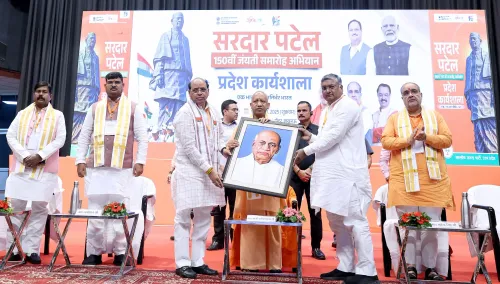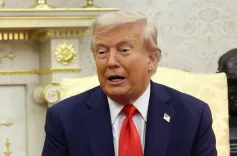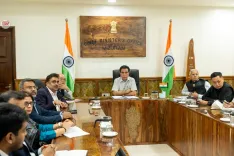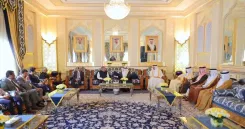Are India and Mexico Strengthening Their Partnership in Health and Technology?
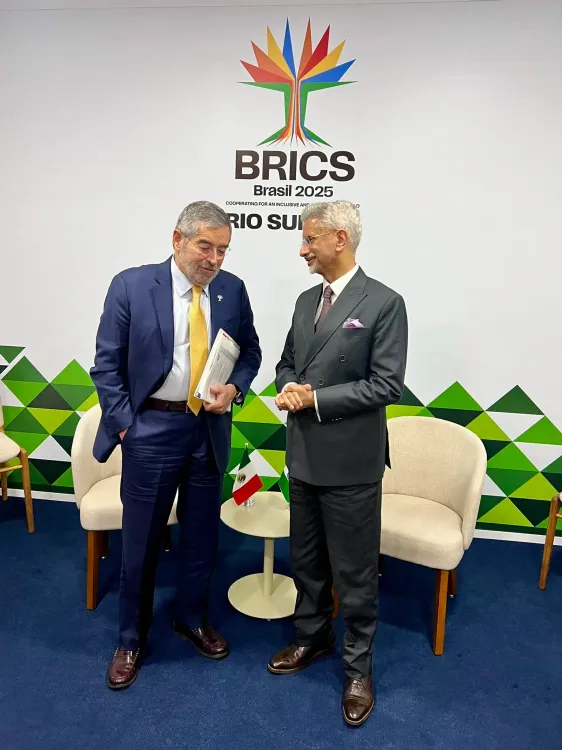
Synopsis
Key Takeaways
- India and Mexico are enhancing cooperation in health and technology.
- The two countries established diplomatic relations in 1950.
- 2025 will mark the 75th anniversary of their diplomatic ties.
- Both nations actively collaborate in international forums like the UN and G20.
- BRICS leaders condemned terrorism and reiterated their commitment to combat it.
Rio de Janeiro, July 7 (NationPress) External Affairs Minister (EAM) S. Jaishankar met with the Secretary of Foreign Affairs of Mexico, Juan Ramon de la Fuente, on the sidelines of the BRICS Summit on Sunday.
In a post on X, the EAM expressed his satisfaction, stating: "It was a pleasure to meet with Juan Ramon de la Fuente in Rio de Janeiro today. We engaged in discussions aimed at further enhancing our collaboration in the realms of health, digital technology, and space."
Earlier, S. Jaishankar also held discussions with Russian Foreign Minister Sergey Lavrov.
Notably, Mexico was the first nation in Latin America to form diplomatic ties with Independent India in 1950. The year 2025 will commemorate the diamond jubilee (75 years) of these diplomatic relations. Both nations actively collaborate and consult within international platforms such as the UN and G20.
As stated, India maintains an Embassy in Mexico City along with three Honorary Consulates located in Guadalajara, Monterrey, and Cancun.
Additionally, Mexico has its Embassy in New Delhi and a Consulate in Mumbai, which opened in 2023. During the visit of former Mexican President Felipe Calderon to India in 2007, a "Privileged Partnership" was established between the two nations.
The last high-level meeting occurred during Prime Minister Narendra Modi’s visit to Mexico City on June 8, 2016, where he met then-President Pena Nieto. They agreed to work on elevating the bilateral relationship to a 'Strategic Partnership'. Unfortunately, a reciprocal visit from the Mexican President to India in 2017 was canceled due to a severe earthquake in Mexico City.
EAM Jaishankar had previously visited Mexico in September 2021, reiterating the leaders' goal of enhancing the relationship to a 'Strategic Partnership'. He also met with then-President Lopez Obrador. The prior visit by an Indian EAM was by P.V. Narasimha Rao in 1980.
On the Mexican side, former Foreign Minister Marcelo Ebrard visited India in April 2022 to emphasize their commitment to a 'Strategic Partnership'. He returned in 2023 for the G20 Foreign Ministers’ Meeting.
Earlier on Sunday, India achieved a significant diplomatic milestone under Prime Minister Narendra Modi's leadership, as leaders of the BRICS nations condemned the April 22 Pahalgam terror attack and reaffirmed their commitment to countering the cross-border movement of terrorists, terrorism financing, and terrorist havens.
This heinous attack, sponsored by Pakistan, resulted in the deaths of 26 innocent tourists in Jammu and Kashmir, an act that was globally condemned.
The 'Rio de Janeiro Declaration', adopted on the first day of the 17th BRICS Summit, denounced all acts of terrorism as criminal and unjustifiable, irrespective of their motivation.
Paragraph 34 of the Rio Declaration stated, "We strongly condemn the terrorist attack in Jammu and Kashmir on April 22, 2025, which claimed at least 26 lives and left many injured. We reaffirm our commitment to combating terrorism in all its forms, including countering the cross-border movement of terrorists and financing terrorism."
Investigations into the Pahalgam attack revealed communication links between terrorists in Pakistan. The group claiming responsibility, The Resistance Front (TRF), is affiliated with the UN-proscribed terrorist organization Lashkar-e-Taiba.
During the attack, Pakistani terrorists targeted Indian and Nepalese nationals, segregating them based on religion.
BRICS leaders emphasized, "Terrorism should not be linked to any religion, nationality, civilization, or ethnic group. All individuals involved in terrorist activities must be held accountable and brought to justice in accordance with national and international law."

